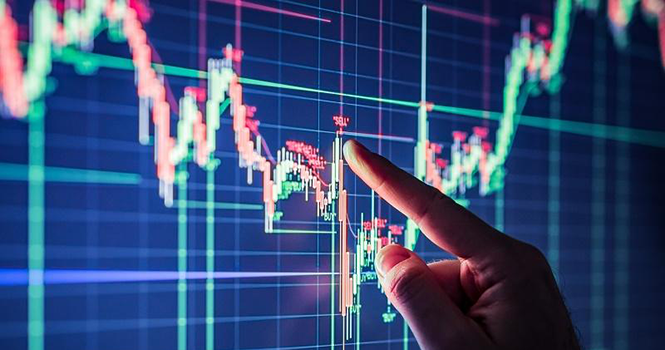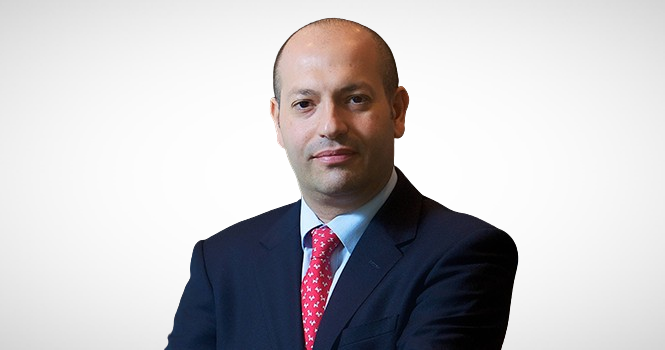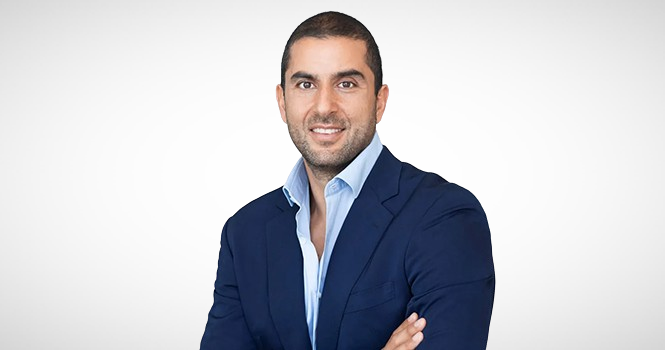
Search Result
- TASI
-
Energy
- 2222 - SAUDI ARAMCO
- 2030 - SARCO
- 2380 - PETRO RABIGH
- 4030 - BAHRI
- 2381 - ARABIAN DRILLING
- 2382 - ADES
- 1201 - TAKWEEN
- 1202 - MEPCO
- 1210 - BCI
- 1211 - MAADEN
- 1301 - ASLAK
- 1304 - ALYAMAMAH STEEL
- 1320 - SSP
- 2001 - CHEMANOL
- 2010 - SABIC
- 2020 - SABIC AGRI-NUTRIENTS
- 2090 - NGC
- 2150 - ZOUJAJ
- 2170 - ALUJAIN
- 2180 - FIPCO
- 2200 - APC
- 2210 - NAMA CHEMICALS
- 2220 - MAADANIYAH
- 2240 - SENAAT
- 2250 - SIIG
- 2290 - YANSAB
- 2300 - SPM
- 2310 - SIPCHEM
- 2330 - ADVANCED
- 2350 - SAUDI KAYAN
- 3002 - NAJRAN CEMENT
- 3003 - CITY CEMENT
- 3004 - NORTHERN CEMENT
- 3005 - UACC
- 3010 - ACC
- 3020 - YC
- 3030 - SAUDI CEMENT
- 3040 - QACCO
- 3050 - SPCC
- 3060 - YCC
- 3080 - EPCCO
- 3090 - TCC
- 3091 - JOUF CEMENT
- 3092 - RIYADH CEMENT
- 2060 - TASNEE
- 3008 - ALKATHIRI
- 3007 - OASIS
- 1321 - EAST PIPES
- 1322 - AMAK
- 2223 - LUBEREF
- 2360 - SVCP
- 1323 - UCIC
- 4143 - TALCO
- 1212 - ASTRA INDUSTRIAL
- 1302 - BAWAN
- 4146 - GAS
- 1303 - EIC
- 4145 - OBEIKAN GLASS
- 4148 - ALWASAIL INDUSTRIAL
- 2040 - SAUDI CERAMICS
- 2110 - SAUDI CABLE
- 4144 - RAOOM
- 2160 - AMIANTIT
- 2320 - ALBABTAIN
- 2370 - MESC
- 4140 - SIECO
- 4141 - ALOMRAN
- 4142 - RIYADH CABLES
- 1214 - SHAKER
- 4110 - BATIC
- 4147 - CGS
- 4031 - SGS
- 4040 - SAPTCO
- 4260 - BUDGET SAUDI
- 2190 - SISCO HOLDING
- 4261 - THEEB
- 4263 - SAL
- 4262 - LUMI
- 4265 - CHERRY
- 4264 - FLYNAS
- 1810 - SEERA
- 6013 - DWF
- 1820 - BAAN
- 4170 - TECO
- 4290 - ALKHALEEJ TRNG
- 6017 - JAHEZ
- 6002 - HERFY FOODS
- 1830 - LEEJAM SPORTS
- 6012 - RAYDAN
- 4291 - NCLE
- 4292 - ATAA
- 6014 - ALAMAR
- 6015 - AMERICANA
- 6016 - BURGERIZZR
- 6018 - SPORT CLUBS
- 6019 - ALMASAR ALSHAMIL
- 4003 - EXTRA
- 4008 - SACO
- 4050 - SASCO
- 4190 - JARIR
- 4240 - CENOMI RETAIL
- 4191 - ABO MOATI
- 4051 - BAAZEEM
- 4192 - ALSAIF GALLERY
- 4193 - NICE ONE
- 4194 - BUILD STATION
- 4200 - ALDREES
- 4001 - A.OTHAIM MARKET
- 4006 - FARM SUPERSTORES
- 4061 - ANAAM HOLDING
- 4160 - THIMAR
- 4161 - BINDAWOOD
- 4162 - ALMUNAJEM
- 4164 - NAHDI
- 4163 - ALDAWAA
- 2050 - SAVOLA GROUP
- 2100 - WAFRAH
- 2270 - SADAFCO
- 2280 - ALMARAI
- 6001 - HB
- 6010 - NADEC
- 2288 - NOFOTH
- 6020 - GACO
- 6040 - TADCO
- 6050 - SFICO
- 6060 - SHARQIYAH DEV
- 6070 - ALJOUF
- 6090 - JAZADCO
- 2281 - TANMIAH
- 2282 - NAQI
- 2283 - FIRST MILLS
- 4080 - SINAD HOLDING
- 2284 - MODERN MILLS
- 2285 - ARABIAN MILLS
- 2286 - FOURTH MILLING
- 2287 - ENTAJ
- 4002 - MOUWASAT
- 4021 - CMCER
- 4004 - DALLAH HEALTH
- 4005 - CARE
- 4007 - ALHAMMADI
- 4009 - SAUDI GERMAN HEALTH
- 2230 - CHEMICAL
- 4013 - SULAIMAN ALHABIB
- 2140 - AYYAN
- 4014 - EQUIPMENT HOUSE
- 4017 - FAKEEH CARE
- 4018 - ALMOOSA
- 4019 - SMC HEALTHCARE
- 1010 - RIBL
- 1020 - BJAZ
- 1030 - SAIB
- 1050 - BSF
- 1060 - SAB
- 1080 - ANB
- 1120 - ALRAJHI
- 1140 - ALBILAD
- 1150 - ALINMA
- 1180 - SNB
- 2120 - SAIC
- 4280 - KINGDOM
- 4130 - SAUDI DARB
- 4081 - NAYIFAT
- 1111 - TADAWUL GROUP
- 4082 - MRNA
- 1182 - AMLAK
- 1183 - SHL
- 4083 - TASHEEL
- 4084 - DERAYAH
- 8010 - TAWUNIYA
- 8012 - JAZIRA TAKAFUL
- 8020 - MALATH INSURANCE
- 8030 - MEDGULF
- 8040 - MUTAKAMELA
- 8050 - SALAMA
- 8060 - WALAA
- 8070 - ARABIAN SHIELD
- 8190 - UCA
- 8230 - ALRAJHI TAKAFUL
- 8280 - LIVA
- 8150 - ACIG
- 8210 - BUPA ARABIA
- 8180 - ALSAGR INSURANCE
- 8170 - ALETIHAD
- 8100 - SAICO
- 8120 - GULF UNION ALAHLIA
- 8200 - SAUDI RE
- 8160 - AICC
- 8250 - GIG
- 8240 - CHUBB
- 8260 - GULF GENERAL
- 8300 - WATANIYA
- 8310 - AMANA INSURANCE
- 8311 - ENAYA
- 8313 - RASAN
- 4330 - RIYAD REIT
- 4331 - ALJAZIRA REIT
- 4332 - JADWA REIT ALHARAMAIN
- 4333 - TALEEM REIT
- 4334 - AL MAATHER REIT
- 4335 - MUSHARAKA REIT
- 4336 - MULKIA REIT
- 4338 - ALAHLI REIT 1
- 4337 - Al AZIZIAH REIT
- 4342 - JADWA REIT SAUDI
- 4340 - Al RAJHI REIT
- 4339 - DERAYAH REIT
- 4344 - SEDCO CAPITAL REIT
- 4347 - BONYAN REIT
- 4345 - ALINMA RETAIL REIT
- 4346 - MEFIC REIT
- 4348 - ALKHABEER REIT
- 4349 - ALINMA HOSPITALITY REIT
- 4350 - ALISTITHMAR REIT
- 4020 - ALAKARIA
- 4324 - BANAN
- 4323 - SUMOU
- 4090 - TAIBA
- 4100 - MCDC
- 4150 - ARDCO
- 4220 - EMAAR EC
- 4230 - RED SEA
- 4250 - JABAL OMAR
- 4300 - DAR ALARKAN
- 4310 - KEC
- 4320 - ALANDALUS
- 4321 - CENOMI CENTERS
- 4322 - RETAL
- 4326 - ALMAJDIAH
- 4325 - MASAR
- 4327 - AlRAMZ
- NOMU
-
Media and Entertainment
Consumer Durables & Apparel
Real Estate Mgmt & Dev't
- 9521 - INMAR
- 9535 - LADUN
- 9591 - VIEW
- 9610 - FIRST AVENUE
- 9634 - ADEER
- 9640 - ASAS MAKEEN
- 9648 - HAMAD BIN SAEDAN REAL ESTATE
- 9641 - HAWYIA
- 9515 - FESH FASH
- 9532 - ALJOUF WATER
- 9536 - FADECO
- 9559 - BALADY
- 9564 - HORIZON FOOD
- 9555 - LEEN ALKHAIR
- 9612 - SAMA WATER
- 9622 - SMC
- 9644 - NAF
- 9650 - SAHAT ALMAJD
- 9530 - TIBBIYAH
- 9527 - AME
- 9544 - FUTURE CARE
- 9546 - NABA ALSAHA
- 9574 - PRO MEDEX
- 9594 - ALMODAWAT
- 9572 - ALRAZI
- 9587 - LANA
- 9600 - QOMEL
- 9604 - MIRAL
- 9626 - SMILE CARE
- 9616 - JANA
- 9627 - TMC
- 9620 - BALSM MEDICAL
- 9647 - WAJD LIFE
- 9513 - WATANI STEEL
- 9514 - ALNAQOOL
- 9523 - GROUP FIVE
- 9539 - AQASEEM
- 9548 - APICO
- 9553 - MOLAN
- 9565 - MEYAR
- 9552 - SAUDI TOP
- 9563 - BENA
- 9566 - LIME INDUSTRIES
- 9580 - ALRASHID INDUSTRIAL
- 9576 - PAPER HOME
- 9588 - RIYADH STEEL
- 9575 - MARBLE DESIGN
- 9599 - TAQAT
- 9601 - ALRASHEED
- 9605 - NEFT ALSHARQ
- 9607 - ASG
- 9609 - NAAS PETROL
- 9623 - ALBATTAL FACTORY
- 9631 - HKC
- 9510 - NBM
- 9533 - SPC
- 9542 - KEIR
- 9547 - RAWASI
- 9568 - MAYAR
- 9569 - ALMUNEEF
- 9578 - ATLAS ELEVATORS
- 9560 - WAJA
- 9611 - UFG
- 9624 - ALSHEHILI METAL
- 9633 - SERVICE EQUIPMENT
- 9639 - ANMAT
- 9583 - UNITED MINING
- 9608 - ALASHGHAL ALMOYSRA
- 9540 - TADWEEER
- 9545 - ALDAWLIAH
- 9570 - TAM DEVELOPMENT
- 9593 - PAN GULF
- 9597 - LEAF
- 9606 - THARWAH
- 9613 - SHALFA
- 9619 - MULTI BUSINESS
- 9621 - DRC
- 9625 - ITMAM
- 9645 - SIGN WORLD
- 9541 - ACADEMY OF LEARNING
- 9562 - FOOD GATE
- 9590 - ARMAH
- 9598 - ALMOHAFAZA FOR EDUCATION
- 9603 - HORIZON EDUCATIONAL
- 9567 - GHIDA ALSULTAN
- 9617 - ARABICA STAR
- 9630 - RATIO
- 9628 - LAMASAT
- 9632 - FUTURE VISION
- 9636 - AlKUZAMA
- 9581 - CLEAN LIFE
- 9522 - ALHASOOB
- 9537 - AMWAJ INTERNATIONAL
- 9551 - KNOWLEDGE TOWER
- 9589 - FAD
- 9649 - JAMJOOM FASHION
- 9651 - ALTWIJRI
Sign In
×Forgot password?
×-
Bank Ranking Banks Ratios Cement Statistics Cement Ranking Cement Ratios Monetary and Economic Statistics Oil, Gas and Fuel Macro Economy Consumer Spending Inflation Exports & Imports Food Prices Non Food Prices Construction Materials Petrochem. Ranking Petrochem. Ratios Retail Rankings Retail Ratios Grocery Ranking Grocery Ratios Top Growth Dividend History
 Argaam Tools
×
Argaam Tools
×
Analyst views on Tadawul’s bearish performance, market outlook

Analysts surveyed by Argaam attributed the downturn witnessed in the Saudi Exchange (Tadawul) to several factors related to liquidity distribution and changes in investor sentiment, rather than fundamentals or corporate results.
The market did not react positively to the Q2 2025 earnings disclosures, despite most sectors posting strong performance, excluding petrochemicals, whose profits declined due to a natural sector cycle, said the analysts.
They also indicated that the weak liquidity was due to product competition versus debt instruments and Murabaha, on the one hand, and investors' shift towards IPO opportunities and foreign markets, on the other.
According to data available with Argaam, Tadawul’s benchmark index TASI lost nearly 9.5% of its year-to-date market capitalization, dragged by broad-based selling pressures across most sub-sectors.
During this period, listed companies were mostly in red. Stock prices of 210 players retreated, while only 40 others rose. The average daily trading value reached nearly SAR 5.47 billion, while the total number of executed transactions exceeded 71 million.
Meanwhile, Tadawul-listed companies, excluding Saudi Aramco, reported an 8% fall in the Q2 2025 aggregate net profit to SAR 38.29 billion, primarily due to results of the petrochemicals and transportation sectors, according to Argaam’s data.
Including Saudi Aramco, the second-quarter combined net profit slipped 16% year-on-year (YoY) to around SAR 123.93 billion.
|
Financial Results Ex. One-Offs (SAR bln) |
|||
|
Item |
Q2 2024 |
Q2 2025 |
Change% |
|
Aggregate Profit |
147.87 |
123.92 |
(16%) |
|
Aggregate Profit Ex-Aramco |
41.71 |
38.29 |
(8%) |
|
Aggregate Profit Ex. One-Offs |
40.84 |
43.95 |
+8% |

In an interview with Argaam, Abdullatif Al-Saif, Co-Founder and CEO of Sabeen Investment Co., said TASI players’ second-quarter results were not well received.
Several factors contributed to this setback, including a YoY drop in the market’s combined earnings, especially in some heavyweight sectors such as energy and petrochemicals.
Further, some newly-listed companies for which there had been optimistic views for greater growth, posted lower-than-expected Q2 2025 profits.
“Moreover, some external events took a toll on market performance, including fears of trade tensions and oil price fluctuations, in addition to lower trading volumes, reflecting weak investor sentiment,” Al-Saif explained.
He highlighted that the presence of competitive investment alternatives, such as debt instruments and Murabaha, which provide strong returns, makes the stock market relatively less appealing.
Furthermore, some investors are shifting to foreign markets, most notably the US market, which has performed positively over the past period, Al-Saif added.

On his part, Tarek Fadlallah, CEO of Nomura Asset Management - Middle East, stated that the benchmark index TASI did not react to the Q2 2025 financials in the banking and the telecommunications sectors as the index remains saturated with a limited number of heavyweight players, which does not necessarily translate into a broad market base.
Even after excluding the significant impact of Aramco's earnings, which weighed on investor sentiment, Tadawul’s aggregate bottom-line contracted by about 8%, he pointed out.
Reasons for Weak Liquidity
Commenting on weak market liquidity, Al-Saif indicated that equities are facing growing competition against other investment channels such as debt instruments and Murabaha, which played a pivotal role in market downturn.
He added that while Tadawul witnessed remarkable activity in terms of IPOs and rights issues, the available liquidity among investors was distributed across these opportunities rather than trading existing shares.
Summertime, which typically witnesses calm activity, also contributed to the bearish retail investor participation. In addition, some investors are turning to top-performing global equity markets such as the US, he continued.
Corporate Earnings Surprises
Al-Saif confirmed that TASI players’ Q2 2025 financial results carried positive surprises in some sectors, especially in banking, transportation, and capital goods related to infrastructure projects.
Meanwhile, multiple setbacks occurred in the retail, energy, and consumer services sectors, in addition to the media and entertainment sector.
Unjustified Pullback

On his part, Fadi Arbid, Founding Partner and CIO of Amwal Capital, stressed that the current decline in the Saudi capital market is fundamentally unjustified, noting that corporate earnings remain generally strong in most sectors, except for petrochemicals, whose current weakness is generally ascribed to a natural sector cycle.
Other Gulf markets, especially the UAE, have recently recorded strong gains, backed by similar positive earnings surprises, he further stated.
Tadawul has historically traded at a significant premium compared to its emerging market peers, such as the MSCI Emerging Markets Index. However, this premium is now diminishing, making current valuations attractive, especially given the Kingdom's financial strength and the robustness of its companies' profits, according to Arbid.
He indicated that the recent market weakness appears to be more closely linked to changes in investor flows, noting that individuals, in particular, shifted toward fixed-income instruments with higher returns, such as the tier-I issues of Saudi banks, which offer a 5.5-6.5% yield.
However, this trend does not take into account both the healthy dividend payouts and the medium-term growth opportunities for Saudi corporates, the CIO emphasized.
Market Outlook
Al-Saif expects the Saudi capital market to witness a gradual recovery in the coming period, especially after the end of the summer holidays, driven by expectations of lower global interest rates, stable oil prices, continued growth in the non-oil economy, and increased government investment in mega projects.
The performance may vary among sector players in H2 2025, based on their profitability growth. Key downsides include a possible decline in oil prices, a sluggish global economy, and a rise in global inflation, which could delay interest rate cuts. This is in addition to any potential slowdown in government spending on infrastructure and projects, he added.
Meanwhile, Arbid said a market correction may be driven by changes in liquidity rather than profits, which constitutes an attractive opportunity for investors seeking long-term exposure to the Saudi market.
But Fadlallah indicated that falling oil prices and rising interest rates have been the main factors pressuring market performance since the beginning of the year.
He noted that even with the possibility of a slight reduction in interest rates as of September, investors will remain in wary of earnings prospects next year if oil prices do not improve.
Comments {{getCommentCount()}}
Be the first to comment
رد{{comment.DisplayName}} على {{getCommenterName(comment.ParentThreadID)}}
{{comment.DisplayName}}

{{comment.ElapsedTime}}

Most Read
- Strong cloud demand drives Saudi investment expansion: Oracle’s Reham Almusa
- Saudi Privatization Program concludes after foundational implementation
- Deloitte: Saudi real estate market undergoing transitional phase
- Fed may hold rates steady amid escalating political woes: Analysts
- Saudi Steel Pipe signs SAR 300M offshore project contract

Market Indices
Popular Links
Quick Links
About Us
Join Us
Argaam Investment Company has updated the Privacy Policy of its services and digital platforms. Know more about our Privacy Policy here.
Argaam uses cookies to personalize content, to provide social media features and analyze traffic, that we might also share with third parties. You consent to our cookies if you use this website



Comments Analysis: